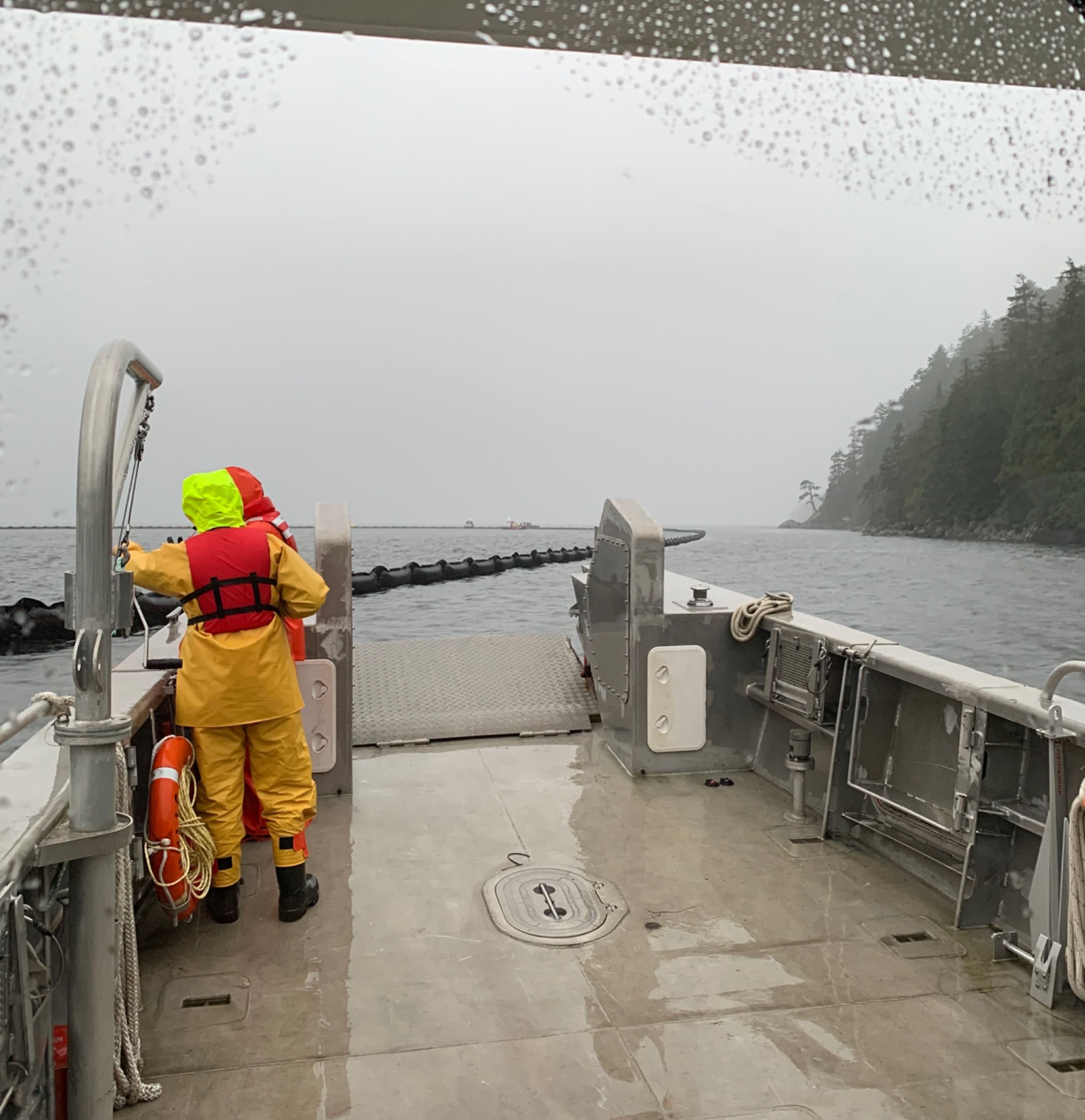Behind the Scenes: Site-Specific Weather Forecasting
Keeping responders safe is of the utmost importance. As some response operations are weather-dependant, having reliable weather forecasts helps the operations team figure out what they can accomplish safely.
As part of the Bligh Island Shipwreck response, Environment and Climate Change Canada (ECCC) is providing the Unified Command (UC) with weather forecasts for the Zuciarte Channel. Provided twice a day, these forecasts show a three-day weather outlook to help the on-site operations team plan their response activities safely. ECCC’s meteorologist and scientists at the department’s Pacific Storm Prediction Centre located in Vancouver, British Columbia prepare these forecasts.
To ensure the weather forecasts are as accurate as possible, ECCC meteorologists gather data from multiple sources including an existing network of weather stations. They have also collected data from portable weather stations that were brought to the response site such as the Viking buoy installed by the Department of Fisheries and Oceans (DFO). The Viking buoy is an instrument that measures local currents and weather, and transmit these data to responders in near real-time. This information is critical for predicting the movement of spilled oil and planning salvage operations.
Ultimately, the site-specific weather forecasting provided by ECCC will help the UC in making important operational decisions while ensuring the safety of the responders.

